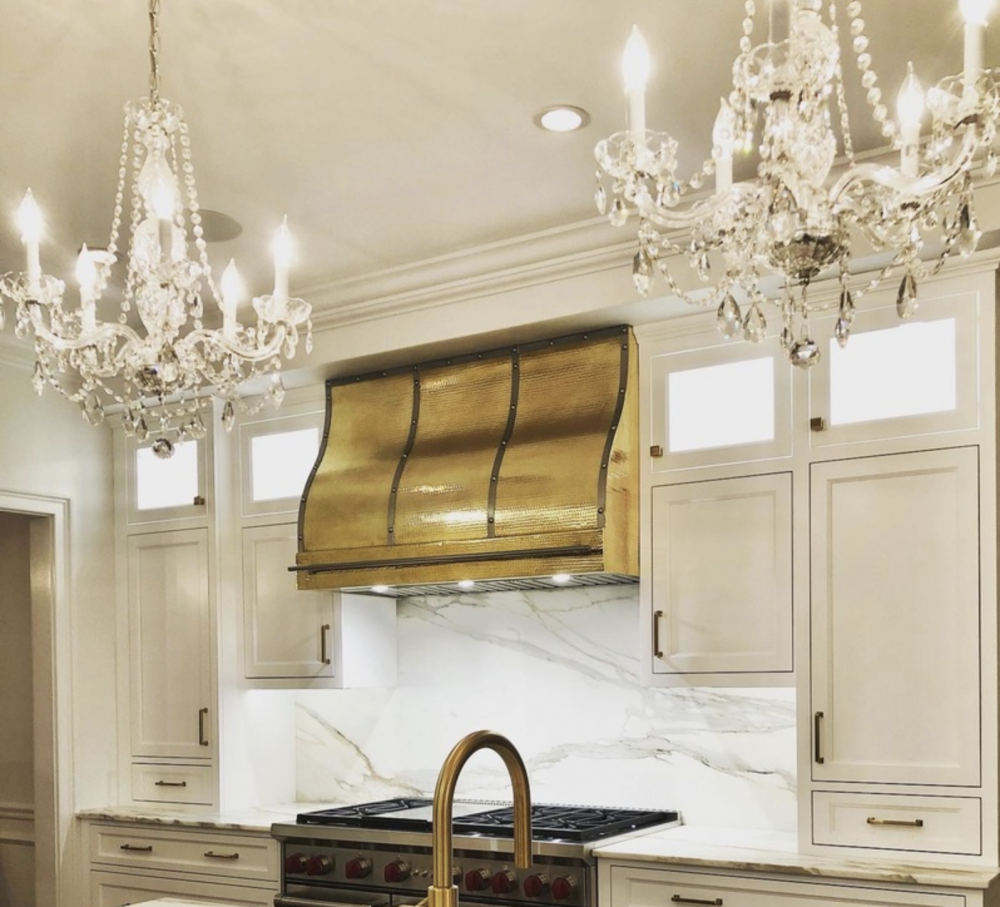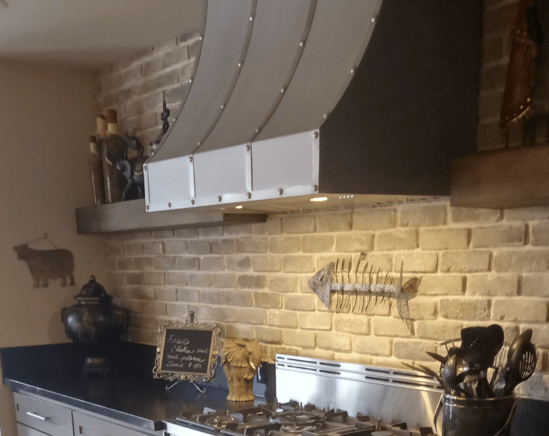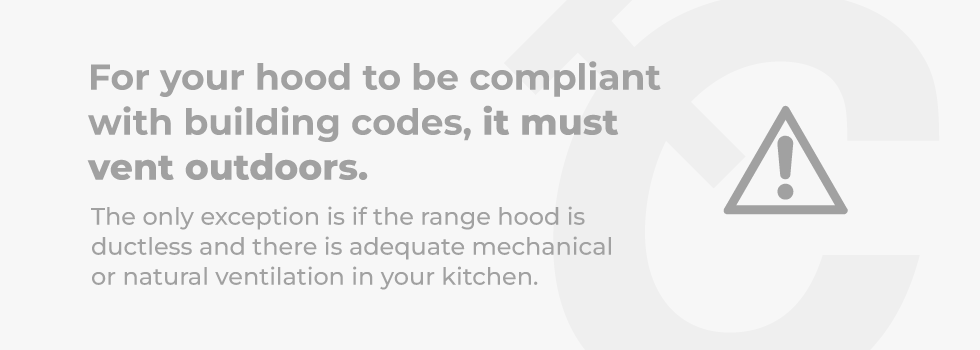
Whether a range hood can vent into an attic space is a question that has plagued many homeowners over the years. Some say yes, others say no.
Either way, it's essential you comply with building codes and understand how these vents work before installing them.
For your hood to be compliant with building codes, it must vent outdoors. The only exception is if the range hood is ductless and there is adequate mechanical or natural ventilation in your kitchen.
Regardless, venting into an attic is not ideal. This article will cover the basics of range hoods and explain why venting into an attic is never a good idea.
Why You Should Avoid Venting Your Hood into the Attic
Range hoods are great because you can use them to vent cooking grease, fumes, steam, and smoke out of your kitchen.
But did you know that if your hood vents into your attic, it can trap air pollution into your home?
Venting your range hood into your attic can also trap other substances in your home and lead to many more issues, which will be listed below.
Moisture
If you allow the hood to vent into your attic, you are putting yourself at risk of moisture buildup inside the attic.
The excess moisture is due to the steam produced when cooking, which gets sucked in through the ventilation system and trapped within the attic.
Moisture can cause decay in wood, allowing mold and mildew to spread. As a result, this may cause health issues for you and your family.
To prevent this, it is essential to install a vented range hood that vents outside of your home.
Condensation
Condensation occurs when warm air collides with cold surfaces, which causes the accumulation of water.
Water accumulation from condensation can happen in your attic when the warm air from your cooking comes in contact with the ductwork in your cold attic.
This condensation can lead to water and mold damage.
Grease
Grease and smoke will also be trapped in your attic and settle on your walls and ceiling.
The accumulation of grease and smoke can affect the air quality in your home and cause your insulation to wear down.
Cooking oil is also highly flammable; allowing grease to accumulate in your attic can create an additional fire hazard.
Food particles
Food particles may also get trapped in your attic. Do you know what trapped food particles can attract?
That's right—bugs and rodents. The trapped food particles can lead to a serious pest issue!
It's best to vent your range hood outdoors to prevent your home from becoming a sanctuary for these unwanted guests.
Does a Range Hood Have to Vent Outside?
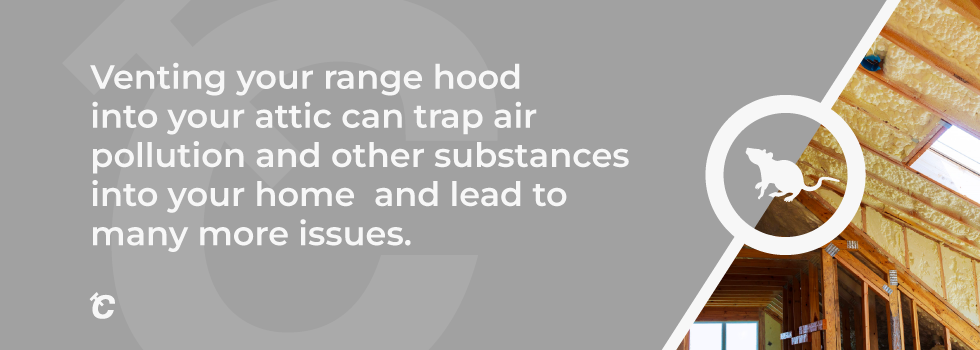
The answer will depend on which range hood you choose. If your range hood is ducted, then yes, it should vent outdoors.
However, a ductless range hood would not need to be vented outside.
This is because the ductless hood range filters your kitchen air entirely within the appliance, eliminating the need to vent the exhaust outdoors.
What Should I Keep in Mind When Installing a Vented Range Hood?
There are additional steps to consider when installing a vented range hood since a ducted ventilation system is required.
Additional insulation
Insulating your ductwork is necessary to prevent smoke, odors, and other particles from escaping into your attic and reducing condensation.
Duct wrap-type insulation can also be used for fire protection for added security.
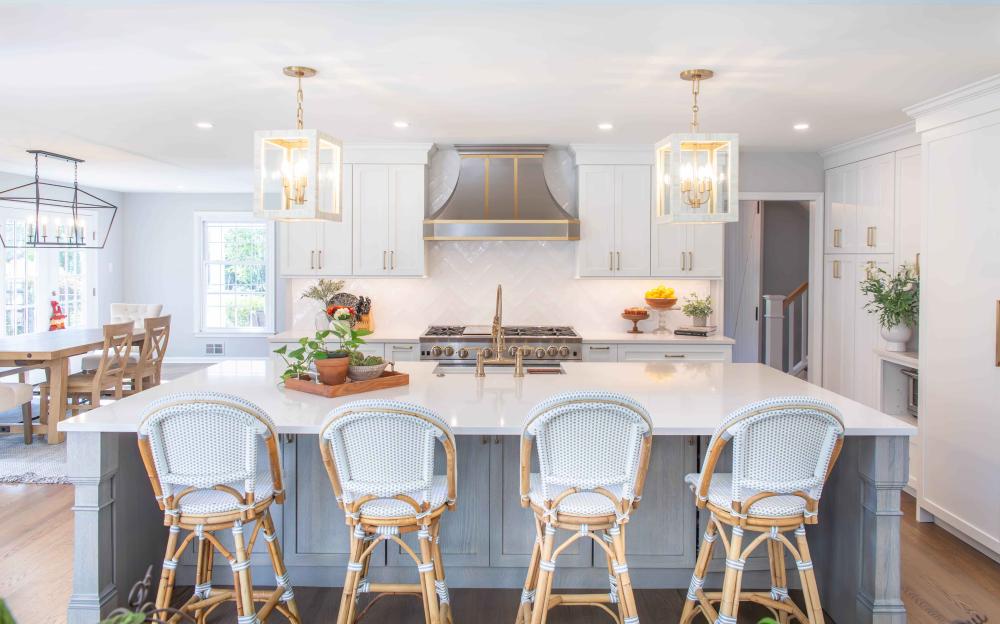
Capping your ductwork
When venting your hood range outdoors, you should cap your ductwork. Roof or wall caps are available depending on where your kitchen exhaust exits your house.
Caps are essential for blocking debris, rain, and snow from your ducting and home.
Capping off your ducts can also prevent backdrafting, which happens when air from your ductwork is pushed back into your kitchen.
Duct size
If you plan to use a ducted hood, ensure that your duct size matches the capacity of your hood.
For example, a range with a 400-600 CFM (cubic feet per minute) measurement should have a duct size between 6-8inches.
Duct length
When installing ducting for your kitchen range, it's always best to find the shortest possible route with the least amount of elbows.
Elbows can increase the resistance inside your duct, requiring more air velocity to make it outside.
Also, a shorter ducting system with fewer elbows ensures that all the greasy kitchen air escapes outside your house.
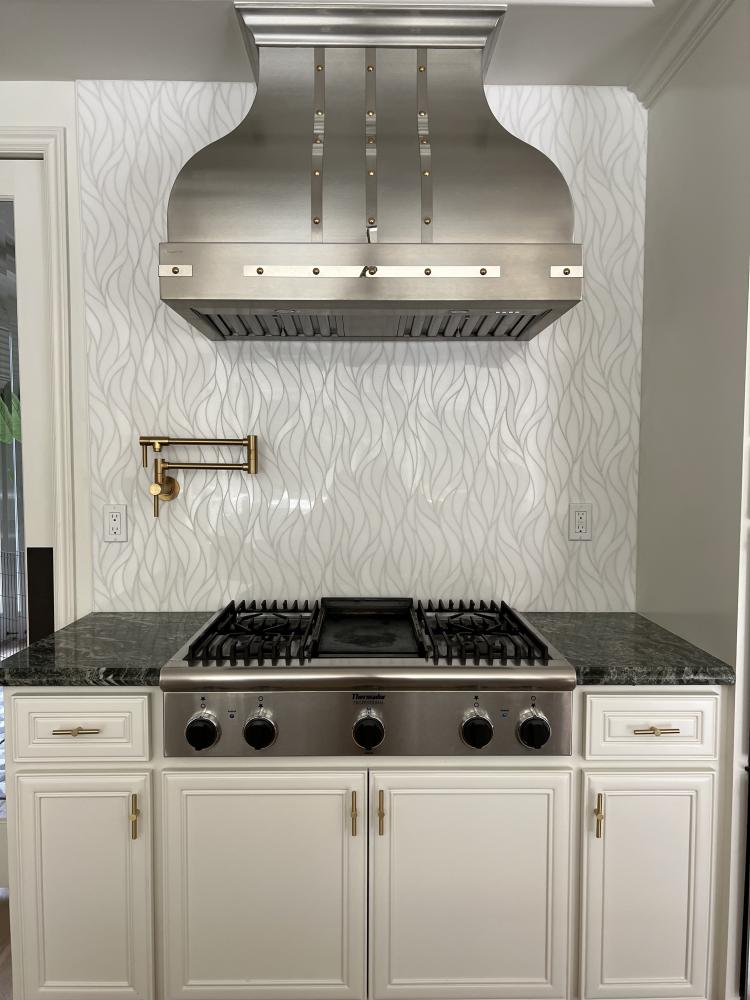
Range Hood Venting Options
When choosing a venting option for your hood range, there are several options to consider.
Horizontal venting
Horizontal venting is the simplest way to vent a range hood.
The range hood duct runs horizontally through an interior wall, allowing kitchen exhaust to flow outside.
This venting method is suitable for wall-mounted range hoods and under cabinet range hoods.
Vertical venting
You can use vertical ventilation systems for both wall-mounted and ceiling-mounted range hoods.
Vertical ventilation is ideal if you have an island hood range.
The difference between ceiling and wall-mounted range hoods is that wall-mounted range hoods can also vent horizontally.
Ductless (recirculating range hood)
The best part about a ductless hood is that it doesn't require a vent. This makes installing it much easier because there's no need to cut holes into walls or ceilings.
But a ductless unit does come with some limitations compared to a standard range hood. For starters, it won't provide the same level of filtration as a ducted version.
And while a ductless unit might look like an excellent option for apartment kitchens, it won't perform nearly as well as a ducted model in larger spaces.
Reasons You Need a Ducted Range Hood
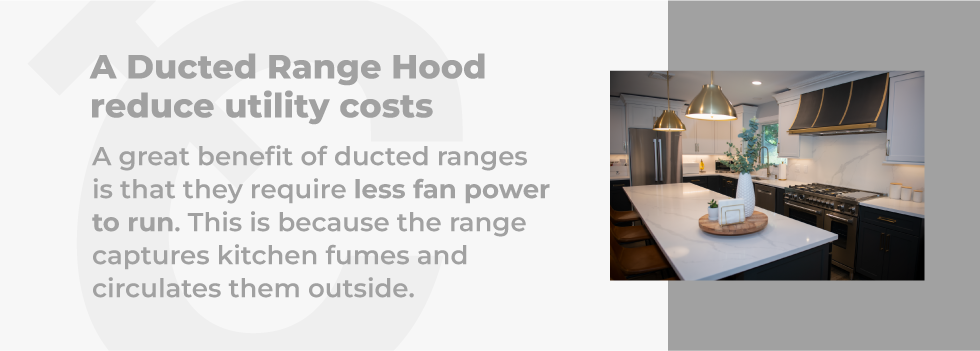
When shopping for a new range hood for your kitchen, it's best to consider the benefits of both options before coming to a decision.
There are various reasons why you might opt for a ducted range.
Reduced utility costs
A great benefit of ducted ranges is that they require less fan power to run. This is because the range captures kitchen fumes and circulates them outside.
It necessitates less use of the blower in the long run.
Multi-functionality
Another benefit of the ducted ranges is that its ventilation system can purify the air, keep the kitchen cool, and trap grease.
As a result, your kitchen will be cleaner and more pleasant. Get a ducted design if you want all three features from your range hood.
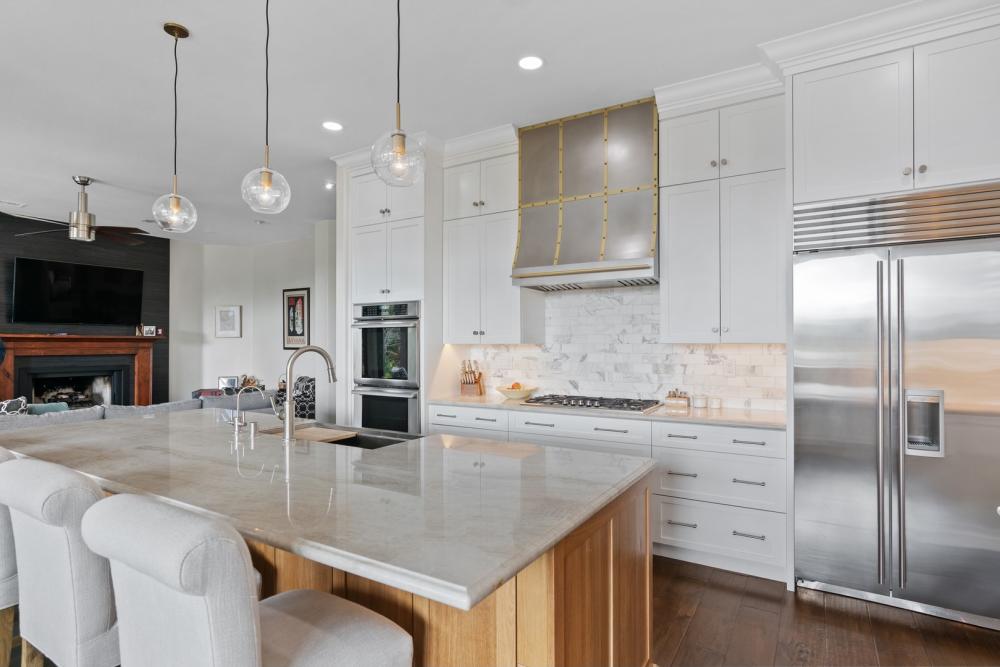
Your kitchen appliances use gas
Gas stoves are excellent for many reasons. However, a gas stove or oven can emit a significant amount of fumes, steam, and carbon monoxide.
Carbon monoxide is an especially harmful gas that must be released outside your house. If not, you risk feeling ill or worse.
Your current range isn't strong enough
Are you having to resort to cracking open windows or doors to air out your kitchen? Do your smoke alarms go off when you cook? Then perhaps you should go for the ducted system.
Vented ranges are great for purifying the air and can quickly remove odors, smoke, steam, and grease.
Reasons You Need a Ductless Range Hood
Ductless ranges are also a great option, depending on your kitchen and how often you plan to cook in it. You may opt for the ductless range design for the following reasons.
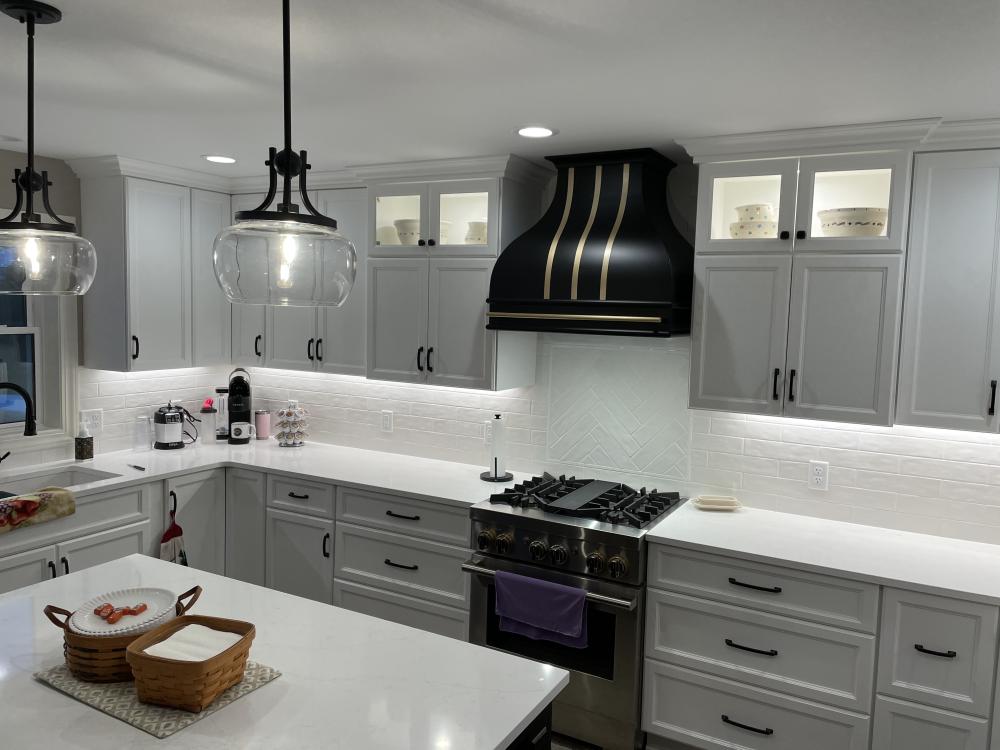
Flexibility
The ductless range's flexibility is perhaps its most significant advantage.
Since no ducting is required, you can easily install your range below a cabinet, above an island, and wherever else you desire.
The ductless range will also make kitchen remodels much easier since you won't need to change or add any additional ducting.
You have limited kitchen space
Smaller kitchens will benefit from a ductless range. This is due to the fact that no ducting will be required prior to installation.
Your home does not have ducting
If your home does not come with ducting in the kitchen and you do not want to go through the hassle of adding it, you should opt for the ductless range.
A ductless system eliminates the need for ductwork to direct air outside.
Why Is Choosing the Right Range Hood Important?
A range hood is something you'll have for a long time and will be a hassle to replace once it is installed.
You want to be certain that you get the best range hood for your kitchen and cooking needs.
A range that isn't compatible with your current ducting system won't be able to be installed at all.
Also, a range with a fan that isn't strong enough will leave fumes and other pollutants lingering throughout your household.
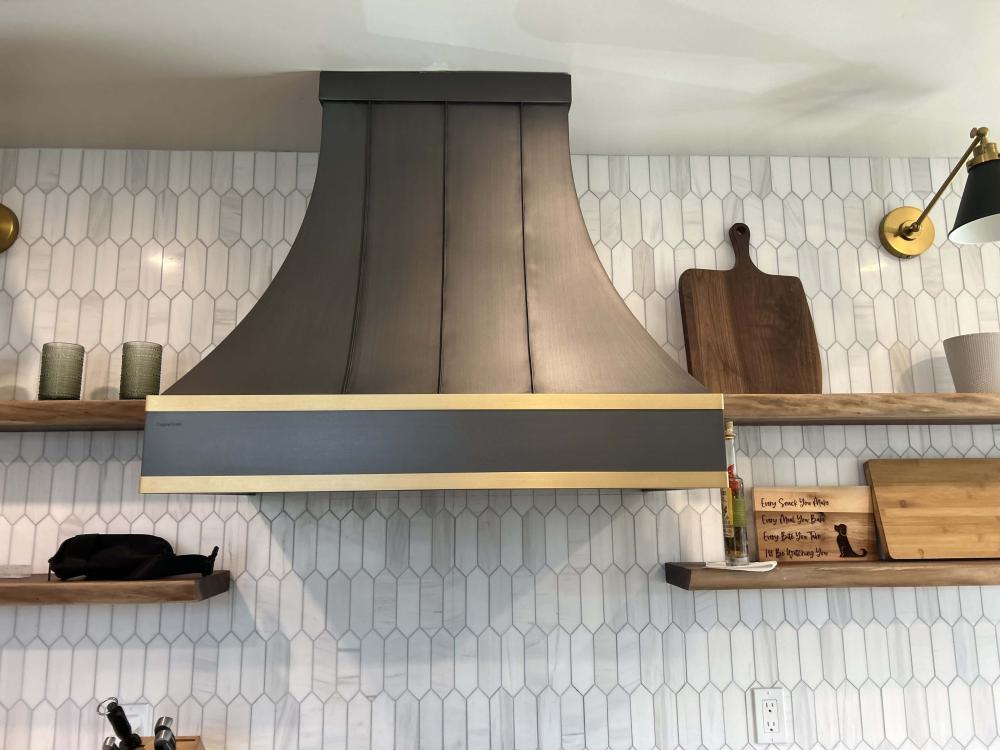
The Bottom Line
A range hood shouldn't be vented into your attic. There are many ductless options available that will work great if you don't want to add additional ducting to direct kitchen exhaust outdoors.
However, if you want a ducted range, there are many ventilation systems to select as well.
CopperSmith offers a wide selection of ducted and ductless models, with various custom hood designs for your kitchen's needs.


